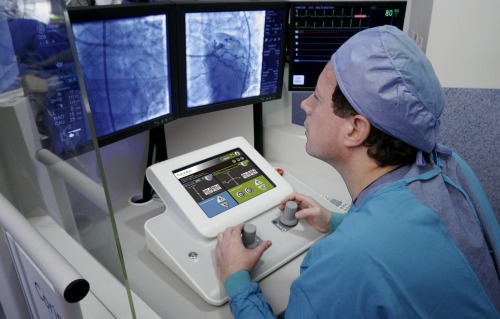Israeli innovation contributes $2.4 billion to the Massachusetts economy, with 100 companies providing 5,920 jobs.

Nearly 100 Massachusetts-based companies founded by Israelis – or offering products based on Israeli technology – generated $2.4 billion in direct revenue in Massachusetts during 2009, according to a study by Stax, an independent global strategy-consulting firm.
“Most of the really innovative, well-capitalized businesses coming from Israel are finding their way to Massachusetts,” says Ted Carr, executive director of the Massachusetts Office of International Trade and Investment. “And they grow here very well.”
A case in point is a start-up focused on converting Israeli defense technology to improve airport runway safety. The US Federal Aviation Administration is interested in this technology, says Carr. “The system was beta tested at [Boston] Logan [International Airport] and now is being considered by the Beijing Municipal Airport Authority for 36 Chinese airports. The company is up from two employees to eight, all within a year’s time.”
According to the study, which was released during the recent two-day program organized by the New England-Israel Business Council, the New England-Israel Business Council’s 2010 Life Sciences Summit at Brandeis University in Waltham, Massachusetts, half the Massachusetts Israeli businesses specialize in information technology, almost a third in life sciences, and the remainder in industries ranging from aerospace and clean/renewable energy to aquatics and security. They are responsible for 5,920 jobs in the commonwealth, which like Israel has about seven million residents.
Renowned for its business acumen
“Israel is well-known for its ‘serial entrepreneur’ business acumen,” Carr tells ISRAEL21c. And bringing that acumen to Massachusetts has benefits for the Israelis as well, who gain access to an established business infrastructure supported by a large educated workforce nourished by 127 colleges and universities.
Cities such as Springfield offer proximity to both New York and Boston. Furthermore, the East Coast location makes the time difference between Israeli and American offices favorable as compared with California, the second most popular of the 23 states hosting Israeli businesses.
Within the identified industries, the study found an even mix between founders who are entrepreneurs who came directly from Israel, Israeli students who became entrepreneurs, and businesses that migrated over or were purchased from Israel.
“For us, the choice of Massachusetts was clear, and a perfect match to position our Israeli robotic technology to be able to provide a safer and more precise heart catheterization for the patient and the physician,” says Tal Wenderow, co-founder and executive vice president of marketing and business development for Natick-based Corindus Vascular Robotics. The company is soon to begin clinical trials in the United States.
Another example is Storwize, a six-year-old Israeli data storage company acquired by IBM for $140 million in August. Originally based in a Tel Aviv suburb, the company has been headquartered in Marlborough since 2008 and is now doing business as IBM Real-time Compression.
Perfectly positioned for Israel
Yair Shiran, Israel’s economic minister to North America, says that Israeli entrepreneurs looking to globalize seek out places where there is an abundant workforce with higher education degrees, strong industry clusters, and a track record of new technologies becoming successful businesses.
“The Israeli market is too small for many companies, so from day one they look at penetrating the international market and especially the American market,” says Shiran, whose office operates under the Israel Ministry of Industry and Trade’s Foreign Trade Service, facilitating and promoting collaboration between Israeli and American companies.
“New York, New Jersey, California and others are striving to get foreign companies that want to open a business presence in the US or relocate there. Some of them send trade missions to Israel. In this sense, Massachusetts is an important destination because of the nature of industry and availability of capital there, so all this together positions Massachusetts as a very attractive place for Israeli business,” says Shiran.
One remaining hurdle that may soon be removed is the lack of direct flights between Israel and Logan Airport.
The “Massachusetts-Israel Economic Relationship” study surveyed Massachusetts business executives at companies based on Israeli innovation and entrepreneurship. Released at the 2010 Life Sciences Summit, it also revealed that Georgia and North Carolina are aggressively pursuing linkages with Israeli businesses.













